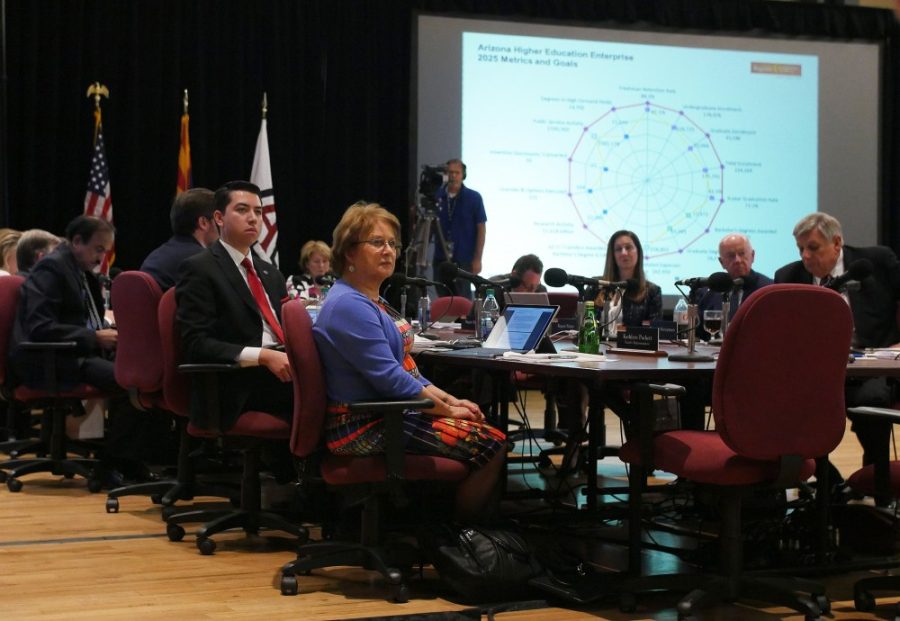The Arizona Board of Regents met for the second day at Northern Arizona University, voting on numerous projects and contracts including the proposed University of Arizona Honors Complex on Sept. 28.
The proposed honors complex required three separate board measures by ABOR:
1) A measure allowing the UA to execute a ground lease with American Campus Communities for the construction of a new Honors College that will include housing, parking, dining and a recreational and health center.
The measure was considered essential, since transfer of land to the university allows the complex to bypass any City of Tucson zoning regulations it would be subject to under private ownership.
2) Authority for the UA to issue bonds to finance the non-housing spaces of the project. While the actual living quarters of the complex will be constructed by ACC, “the UA is responsible for maintaining the academic administrative and dining spaces,” according to ABOR’s executive summary.
RELATED: ABOR approves $66M renovation plan for several complexes
3) Approval for the UA to acquire a portion of Fremont Street from the City of Tucson. This measure allows the UA to implement its plan for turning the street into a thoroughfare between the living quarters and parking garage/recreation center.
This project is believed to be highly important to the university’s future. In a July interview, Honors College dean Terry Hunt said that the new complex would “give the college identity; it gives it a sense of place and it brings students, faculty and staff together in terms of proximity.“
ABOR also approved the Fiscal Year 2019 State Budget Request. The total amount being requested for 2019 is $77 million.
The budget focuses on the 50 percent Resident Student Funding Model, in which half of resident student’s funding will be covered. To achieve this goal, the UA, NAU, and Arizona State University collectively require $252 million. The proposed budget will introduce this sum over the course of four years while taking into account the continued increase of student enrollment.
This budget request is described by Michael Crow, president of ASU, as a whole new budget model. He says the universities have realized the need for a new financial agenda and structure.
“There is no present budget model for the state of Arizona to invest in the universities; there’s only ad-hoc, individual, year by year decisions”
The night began with board President Eileen Klein giving a report highlighting some recent developments between the three state universities.
In a collaborative pilot program between the UA, NAU and ASU, the Arizona Teacher’s Academy is now public, with students enrolled. Launched on Sept. 26 and designed to financially assist aspiring teachers, the program’s aim is to create more quality educators in Arizona.
RELATED: UA plans to spend deferred maintenance money on disability access
As Klein explained to the board, “The idea is that whoever wants to be a teacher, wherever they are in the course of educational experience, will have an opportunity to commit himself or herself to teaching. We’ll find the economic means to help them.”
Klein said she is committed toward lowering tuition for all students and promoting greater tuition transparency. On a federal level, Klein said she expects changes in how higher education is overseen.
“We are at a point in time where we expect that the federal government is going to step back in some ways from its oversight roles, and in many ways we welcome that.”
Campus free speech is currently an issue universities around the country are grappling with. Klein believes it is an important topic to continue engaging.
“We need to continuously assert that we are not like the other places that we are reading about constantly in the media, that we in fact very much support, uphold and advance free speech on our campuses.”
Follow Daily Wildcat on Twitter.








